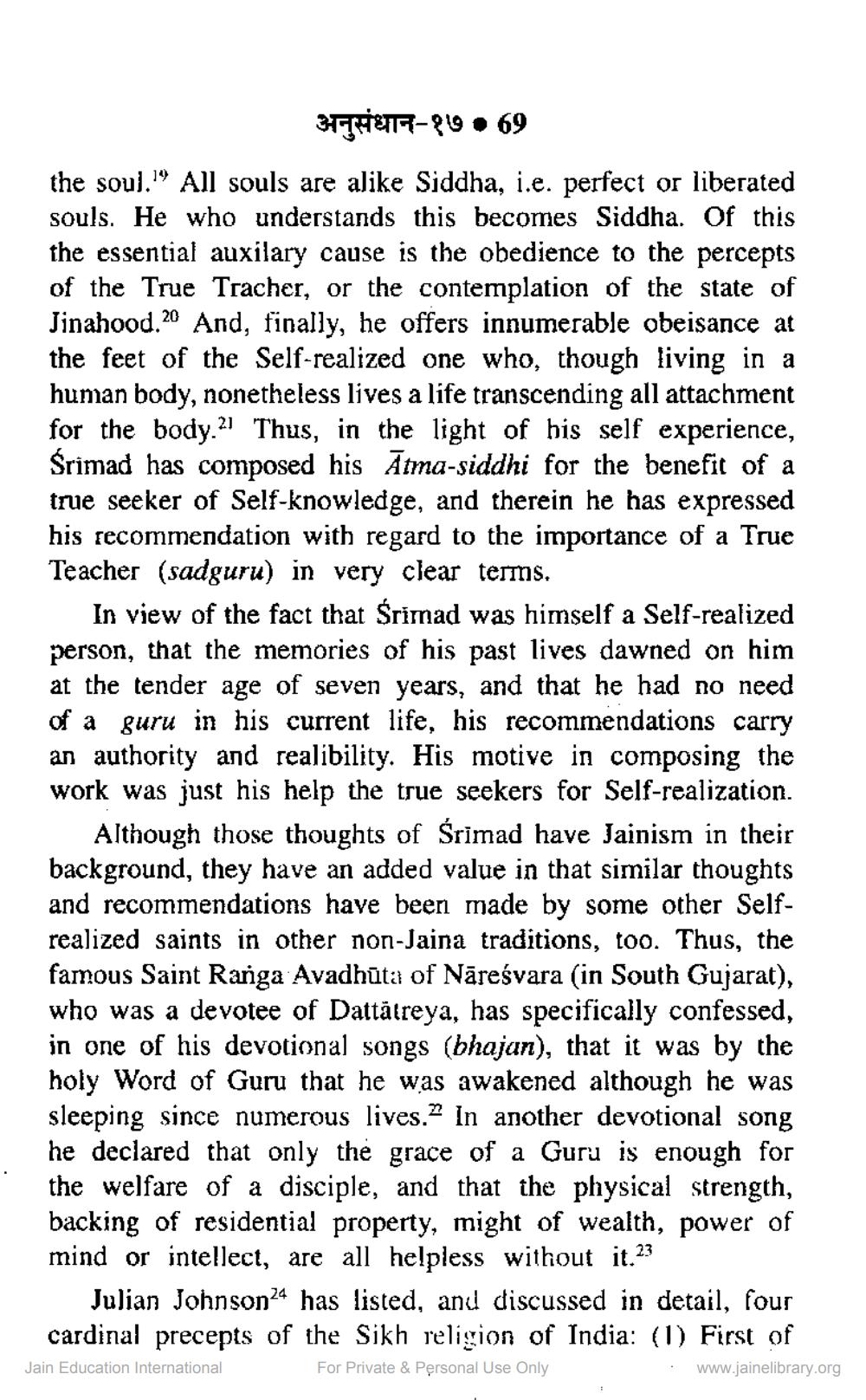Book Title: Srimad Rajchandra on Necessity of Direct Living Sadguru Author(s): N M Kansara Publisher: ZZ_Anusandhan View full book textPage 4
________________ TER-949.69 the soul.'' All souls are alike Siddha, i.e. perfect or liberated souls. He who understands this becomes Siddha. Of this the essential auxilary cause is the obedience to the percepts of the True Tracher, or the contemplation of the state of Jinahood.20 And, finally, he offers innumerable obeisance at the feet of the Self-realized one who, though living in a human body, nonetheless lives a life transcending all attachment for the body.21 Thus, in the light of his self experience, Srimad has composed his Atma-siddhi for the benefit of a true seeker of Self-knowledge, and therein he has expressed his recommendation with regard to the importance of a True Teacher (sadguru) in very clear terms. In view of the fact that Srimad was himself a Self-realized person, that the memories of his past lives dawned on him at the tender age of seven years, and that he had no need of a guru in his current life, his recommendations carry an authority and realibility. His motive in composing the work was just his help the true seekers for Self-realization. Although those thoughts of Srimad have Jainism in their background, they have an added value in that similar thoughts and recommendations have been made by some other Selfrealized saints in other non-Jaina traditions, too. Thus, the famous Saint Ranga Avadhūta of Nāreśvara (in South Gujarat), who was a devotee of Dattatreya, has specifically confessed, in one of his devotional songs (bhajan), that it was by the holy Word of Guru that he was awakened although he was sleeping since numerous lives.” In another devotional song he declared that only the grace of a Guru is enough for the welfare of a disciple, and that the physical strength, backing of residential property, might of wealth, power of mind or intellect, are all helpless without it.23 Julian Johnson24 has listed, and discussed in detail, four cardinal precepts of the Sikh religion of India: (1) First of Jain Education International For Private & Personal Use Only www.jainelibrary.orgPage Navigation
1 2 3 4 5 6 7 8 9
